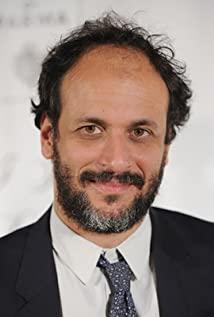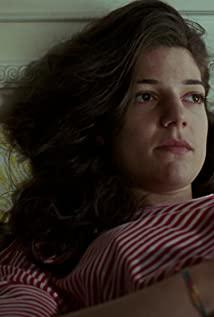A Hollywood film reporter who watched the film commented on Weibo that the film was nothing more than an ordinary "summer romance" film, and it was difficult to arouse the emotional resonance of straight people, and I don't know why it started before it was released so hot. But if you put this movie in a gay movie, you will find it valuable. There are very few gay movies showing relaxed and romantic comradeship, and most of them are narratives of bitterness. There is also a 14-year-old Brazilian film "Boy Like Him" in the same type of gay film. After its release, some film critics thought that the film was de-LGBT. Indeed, it does not show too much of the foothold between the gay community and the prevailing values of heterosexual society. It's not like Dolan's film, in which the protagonist takes a tanker to the polar regions to open up new worlds and declare war on mainstream society in a queer way. It is not like Ou Rong's films, where the characters get lost and entangled between the active and passive positions in sexual matters, and play a game of gender performance. It doesn't show us the Professional who believes in phallocentrism living in a metropolis like "Gays and Mortals", "Hunting Season" and "Cucumber" Gay, in order to find true love, he must work hard to stand out from the "sister circle". Most importantly, it no longer presents the melancholy, lethargic, vulnerable image of comradeship. This is the normality that the Chinese gay society wants to express, that is, when falling in love, all that is considered is the person himself. When Elio was troubled by love, he was not worried about his sexuality, not worried about whether Oliver was gay or not, that is, he did not entangle the classification of straight and curved, but just wrote the sweet words "he may not like me" in his diary. This is a strategy for gay films to win the sympathy of heterosexual society. It does not talk about positive resistance and uses love to influence, but because of its political correctness, it cannot ignore its flaws in the art of shooting. Dismantling gay elements, this film is a "summer romance" film, but it is not completely sweet and forgetful. It shows more of the youth's cringe and uncertainty. The problem is that the director doesn't let us go deep enough into the characters. The first half of the film is mostly watched from Elio's perspective. Elio is indeed a lovable young man, which makes us want to get close to the inner world of a proud teenager. But the director didn't show us more of him through close-up shots, and the teenager's vision mostly saw medium and long-range shots, so that we couldn't get into his heart completely, and we could only feel his superficial impression of the outside world. From the medium and long-range shots, the audience can know that Oliver in public is a confident American, like a movie star, full of charm, not only won the love of Elio's family, but also conquered the nympho girl in this small town, Man playing poker. Oliver's public image is well shaped, but the audience cares more about how the protagonist thinks of Oliver Yes, is he mocking him as much as he does in public? After all, this is a youth film, and the "Xishi" in the eyes of the beholder is what matters. But the director just revealed the teenager's heart through the teenager's written diary, not a movie at all. Little Sweet Tea peeks at Oliver's close-up and close-up shots. In the scene where the two exist at the same time, the director often places the two protagonists in a diagonal position, separated by a certain distance. It can be understood that the director intends to present the estranged relationship between the two characters who suppressed their love in the early stage. But since it is love, it will definitely be revealed and cannot be completely concealed. The director's mistake was to cover up too thoroughly. If the teenager is not allowed to take the risk of staring and peeping at a close distance, how can it highlight the cautiousness of the later temptation? The scene where the two meet for the first time is a failure. I don't know why the director gave Tiancha a back view, so that the audience couldn't see the first impression of Tiancha on Oliver when the two looked at each other. If Tiancha likes Oliver, the director should give more plot and camera hints, such as staring at or cutting Oliver's body: his muscles (the volleyball scene seems to be from Tiancha's point of view, but it's just a medium and long shot, it's not enough close-up); his swimming trunks (there are shots of them, but more from an omniscient perspective). In the end, the image of the seventeen-year-old boy is full of thoughts, but he doesn't want us to peep into his heart, so the audience will naturally not be able to substitute it. They will only think like Oliver that such a boy is just arrogant and only wants to keep distance.
The best shot of the film is the middle section, the long-shot scene where the two are about to confess their confession around the square. Previously, the two were in the same picture, still keeping a distance and looking at each other in the wrong direction, but it was from this scene that the turning point began, and the two finally met and juxtaposed along the curve, which also symbolized that they had opened their hearts to each other. The audience would have thought that utter sweetness was coming, but it wasn't. But when the audience gradually became familiar with the world of teenagers, the director turned to Oliver's perspective to tell the story, and this time it was Elio's turn to become a mystery. The key is that afterward, when Oliver was sleeping on top of Elio, it was difficult to understand Sweet Tea's intention to look at the camera instead of Oliver. Shouldn't lovers look at each other dotingly afterward? This made me question Tiancha's acting skills again, so even if the heavyweight confession line appeared, it didn't make people feel very sweet. Again, after the incident, Oliver looked at Sweet Tea, Sweet Tea looked out the window, the two lacked eyes contact. This seems to be filled with sweet tea. Not satisfied after the fact is not sweet tea. Confused afterwards is sweet tea. What's even more bizarre is that after the incident, Tiancha kissed the parents' necks with sunglasses at breakfast. Why not let Sweet Tea show his eyes, so how can the audience know what he really thinks about his first sexual experience with Oliver. That's why Oliver's expression was embarrassed and inquiring, so he sipped the sweet tea again to confirm, and asked again if he regretted the sweet tea. But shouldn't falling in love mean giving up verbal communication to achieve a state where you won't feel embarrassed with your body? This is equivalent to taking back all the sweetness of last night's spring supper. After a sexual affair, through Oliver's close-up shots, he understood his depression and the reason why he didn't accept the sweet tea confession. Oliver made it clear, and the sweet tea became inexplicable. Besides, the peach clip did not become a plot of two people sharing bodily fluids and sublimating their emotions. Instead, it became a scene of self-blame and perverted, hugging and crying. This is another incomprehensible scene. This kind of plot, which is close to sweet suffocation and retracted every time, continues to the last moment. The director just doesn't let the audience eat candy to their heart's content. Before the two parted, they traveled together in the ancient city and were so blurred that they were about to kiss, the director released another song, dragged Oliver to dance wildly, and left Elio to sit alone and vomit. In the end, no one's world audience came close, how to let love touch the world. It was all because the audience knew in advance that the two protagonists would definitely fall in love to help the director complete the scene. The youth of this film cannot be fermented without the bright sunshine, the green plants, and the complementary color of the naked body.
View more about Call Me by Your Name reviews











